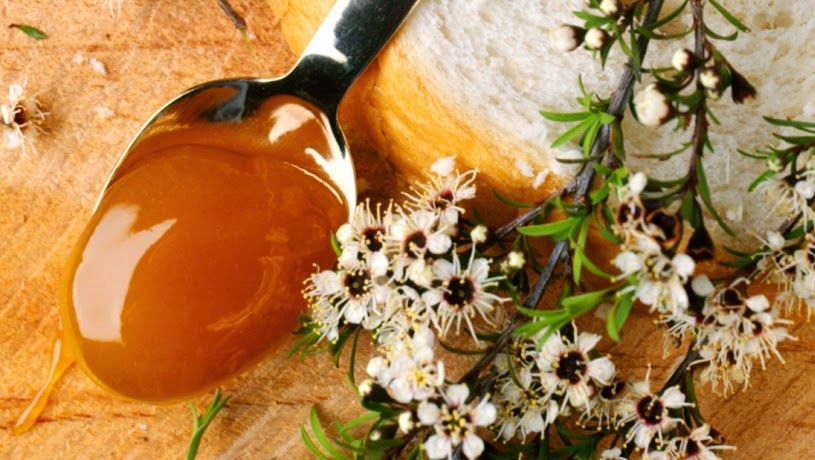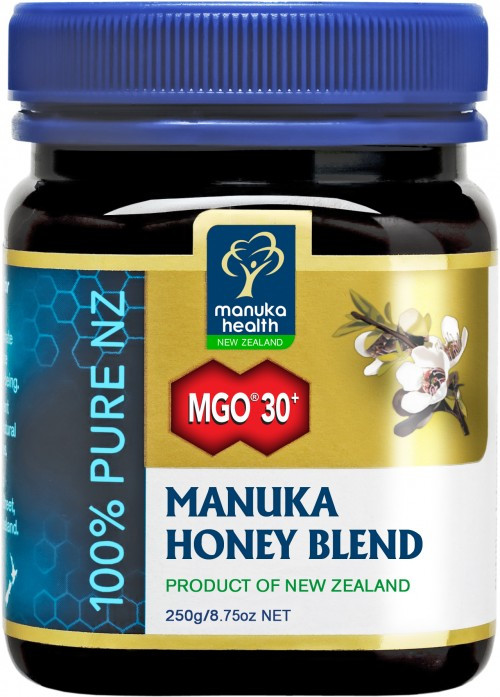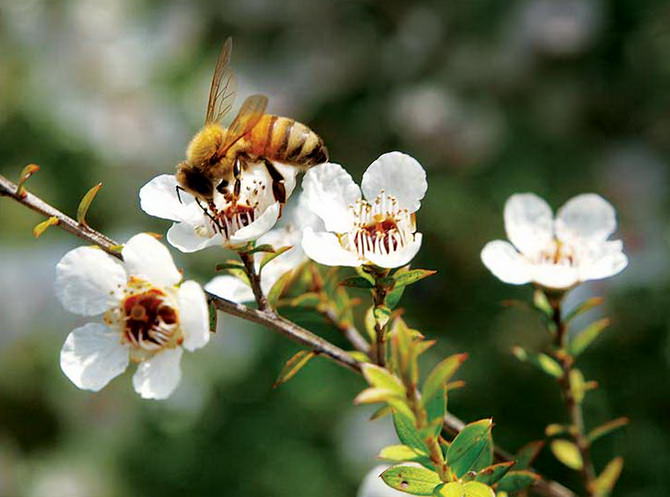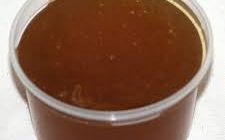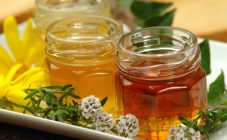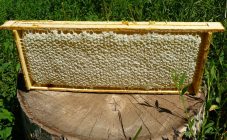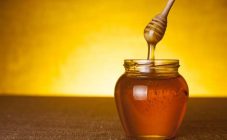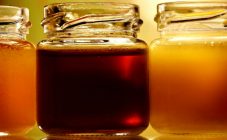Content:
Honey is considered the healthiest and most delicious product of natural origin. The variety is due to the many cultures from which the nectar is collected, the regions of their growth and the time of collection. Everyone has heard of such honey varieties as:
- buckwheat;
- May;
- lime;
- Altaic;
- heather, etc.
Recently, on the Internet, you can often find such a name as manuka honey. Most have not yet encountered this beekeeping product. In order to answer the question what kind of manuka honey is, it is worth moving to New Zealand. In the purest air of its vast expanses, whole gardens of tea bushes grow. Among them there are shrubs (less commonly trees) called manuka. It is they who act as a honey plant for the considered honey of the same name.
New Zealand medicinal honey: what is its secret?
Manuka honey is famous for its medicinal properties. Knowledgeable people literally chase after him, ready to give any money for a jar of the desired nectar. It has antibacterial, anti-inflammatory properties, and is a powerful antioxidant. The secret of New Zealand manuka honey lies in several aspects at once:
- melliferous plants;
- Environment;
- New Zealand government policy.
Honey plants
The tea tree, which is a melliferous plant, is not recognized in world pharmacology by itself. But some countries (New Zealand, Australia) have already studied the healing properties of the plant and use all its components (flowers, leaves, roots) in medicine. It is used to make cosmetics, decoctions, lotions, teas, etc., using it for cosmetic and medical procedures. Essential oils and honey are especially appreciated.
Environment
New Zealand is a state located on the islands of the Pacific Ocean. The air is clean, the land is fertile. Industrial production is mainly represented by fishing, food and timber industries, so the country does not suffer from chemical pollution. Due to its pristine nature, New Zealand is recognized as one of the most environmentally friendly countries in the world.
The bees of this country have a fairly strong immunity and do not need additional chemical baits. Manuka honey is collected clean, without admixtures of other melliferous plants. To do this, New Zealand beekeepers set up apiaries only in areas where shrubs grow absolutely clean from the point of view of ecology.
State policy
The New Zealand government actively supports beekeeping and controls honey production. This position also excludes feeding bees with sucrose and syrups to increase honey yield.
The state annually allocates funds for preventive measures in apiaries. The resulting honey undergoes strict certification before being sent to the world market. Being a beekeeper in New Zealand is honorable and worthy of respect. Therefore, beekeepers take their work with full responsibility.
Ingredients: vitamins and minerals
The medicinal properties of manuka honey are due to its main component, methylglyoxal (MGO). This natural compound is present in any kind of honey, but it is in this honey nectar that its content is almost 100 times higher than in the others.
The peculiarity of methylglyoxal is that when it gets into the affected cell, it starts producing hydrogen peroxide. The amount produced is enough to evaporate the liquid, which leads to the inevitable death of bacteria. Subsequently, the water balance is restored, and the cell is regenerated.
Besides MGO, manuka honey contains a number of other beneficial substances:
- vitamins (A, C, E, K, H, PP, group B);
- minerals (magnesium, potassium, copper, manganese, iodine, cobalt, phosphorus, calcium);
- enzymes;
- amino acids;
- antioxidants;
- proteins.
| MGO | UMF | Description of efficiency |
|---|---|---|
| 30+ | 5+ | Regular honey with no significant effect |
| 100+ | 10+ | Moderate effectiveness, negligible impact. |
| 250+ | 15+ | High efficiency, significant impact. |
| 400+ | 20+ | Very high efficiency and impact. |
| 550+ | 25+ | Super activity and efficiency |
The name of honey, translated from the language of local aborigines, means cheerfulness, a charge of energy, positive.
Amazing and unique New Zealand honey has a wide range of effects.
- Healing effect. This type of bee products is used for wound healing. It kills bacteria, releases beneficial vitamins and minerals, shortening the healing time. It is recommended to apply honey to burns or shallow abrasions, but not to use when treating deep wounds.
- Anti-aging effect. Amber nectar perfectly moisturizes the skin. In addition, it is good as an antibacterial agent: it relieves inflammation, fights acne, and normalizes acidity levels. Face masks nourish, prevent dryness, irritation and acne. They will help preserve youthfulness and elasticity of the skin, and regular application of masks to scars from old wounds will help to make them less noticeable.
- Treatment and strengthening of digestion. Antimicrobial properties appear in the fight against bacteria and intestinal infections. Together with the "sweet medicine", natural glucose enters the body, which increases the production of beneficial bacteria. A noticeable benefit from taking honey on an empty stomach: bloating disappears, pain in the stomach, and peristalsis improves. It is recommended to use a tablespoon with plenty of water (or stir in a warm glass).
- Anti-cold and expectorant effect. The healing composition of Manuka - honey leaves no chance for sore throat and colds that cause a sore throat. Drinking honey during the flu will help kill disease-causing germs and cure coughs.
- Delicious dessert for tea. New Zealand sweetness will be useful for healthy people as well as a disease prevention and as a sweetener. Vitamins and minerals of its composition will help maintain health and cheerful mood.
Contraindications to use
Manuka honey has practically no contraindications. It is worth abandoning its use only for a certain circle of persons who have:
- individual intolerance, allergy to bee products;
- diabetes;
- an ulcer and other diseases of the digestive system during an exacerbation;
- increased acidity of the stomach.
Since honey itself is a heavy and saturated product, you should not introduce it into the diet of children under one year old.
Despite the clear benefits, using honey alone will not help achieve the expected recovery. Therefore, the use of Manuka, especially with a high efficacy rate (from 15+), should be discussed with your doctor.
Storage conditions and temperature conditions
New Zealand nectar is sold in a dark translucent container. You should pay attention to this when buying products, since only in such dishes honey is not exposed to the damaging effects of sunlight.
The storage temperature of this honey is the same as for storage of other types.Its lower limit is +5, and its upper limit is +15 degrees. The humidity in the storage room should be 60-65%.
Having become familiar with the characteristics of manuka honey, everyone can now effectively use this honey to their advantage. Regular consumption strengthens the immune system, and the tips above will help you choose the dosage and choose with what to take this sweet and healthy product.
